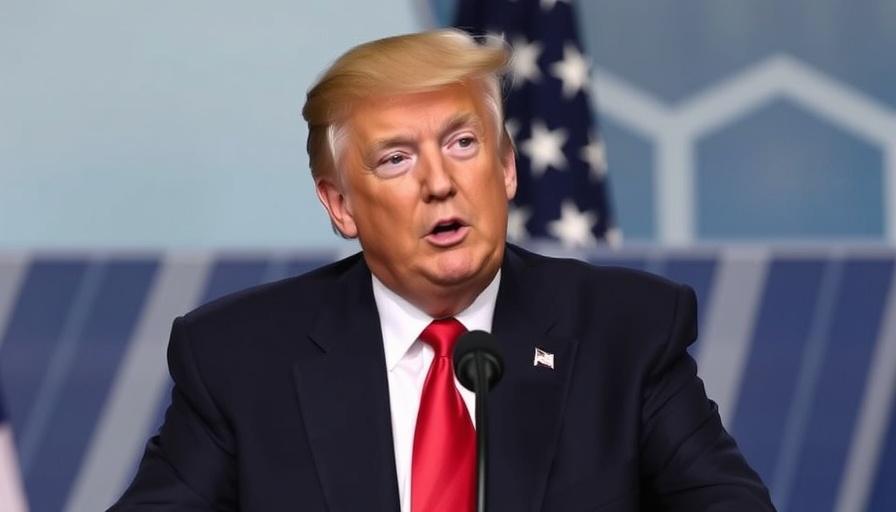
Trump's Rejection of Green Energy Initiatives: A Turning Point?
In a surprising move, former President Donald Trump has announced that the United States will not approve any solar or wind power projects moving forward. This statement raises numerous questions about the future of renewable energy in the nation and underlines a significant shift in energy policy. For homeowners looking to reduce energy costs and eco-conscious consumers striving for sustainability, this development is a significant concern.
The Green Energy Debate: Understanding the Stakes
The rejection of renewable energy projects has ignited a fierce debate among environmentalists, energy advocates, and mainstream consumers. For many Americans, especially homeowners aged 30-65, the transition to renewable energy sources like solar and wind has been seen as a potential solution to rising energy costs and a means to enhance property value. The initial momentum generated during the Obama administration saw a surge in solar installations, tax incentives, and investments into wind energy, all aimed at reducing the carbon footprint.
Impact on Homeowners and Businesses
Trump's recent statements could spell trouble for individuals and businesses investing in solar panels and wind turbines. Many had viewed green energy as a profitable investment opportunity and an essential component of a sustainable future. According to research from the Solar Energy Industries Association, homeowners making the switch to solar can save several thousand dollars over the life of their systems, not to mention the environmental benefits that accompany reducing reliance on fossil fuels.
The Clash of Perspectives: Are Policy Changes Really Needed?
Critics of the administration's energy stance argue that stepping back from renewable energy projects directly contradicts the need for viable long-term solutions to climate change. The National Renewable Energy Laboratory (NREL) has shown that increasing reliance on solar and wind sources not only reduces carbon footprints but also fosters job creation in green technology sectors. Supporters of Trump's policy might claim that prioritizing traditional energy sectors ensures stability and job retention within those industries, but the economic benefits of transitioning to renewables cannot be dismissed.
Future Predictions: What Lies Ahead for Renewable Energy?
Experts predict that Trump's stated policy could hinder the U.S.'s progress in renewable energy technologies, ultimately placing the country at a disadvantage as the global market increasingly leans towards sustainability. According to the International Energy Agency, renewable energy investments are projected to continue increasing globally, raising concerns about the U.S.'s competitiveness in future energy markets. If the government opts not to support these initiatives, it raises the risk of falling behind in technological advances and economic growth associated with green energies.
Making Informed Decisions Amid Uncertainty
As homeowners and business owners grapple with this shifting landscape, staying informed on policies surrounding renewable energy is crucial. Understanding state and local support for solar and wind projects can provide alternative pathways for investment, even in light of federal resistance. Financial incentives exist in many forms, including tax credits and rebates, which can offset the initial installation costs, thus maintaining the attractiveness of switching to renewable sources.
How Homeowners Can Navigate These Changes
For homeowners interested in pursuing solar installations despite federal setbacks, there are actionable insights to be aware of. Research local legislation, connect with local solar providers who are aware of incentives, and view potential installations as long-term investments rather than mere costs. Additionally, consider community solar programs that allow multiple homeowners to share resources and costs while gaining the benefits of renewable energy.
Final Thoughts: The Path Forward
The pivotal moment in U.S. energy policy marks a challenging yet critical opportunity for homeowners, businesses, and energy advocates alike. As consumers increase their demand for sustainable solutions, it will be essential to adapt and advocate for greener policies, regardless of federal decisions. With determination and informed engagement, the path towards a sustainable future can remain illuminated even amid uncertainty.
 Add Row
Add Row  Add
Add 



Write A Comment